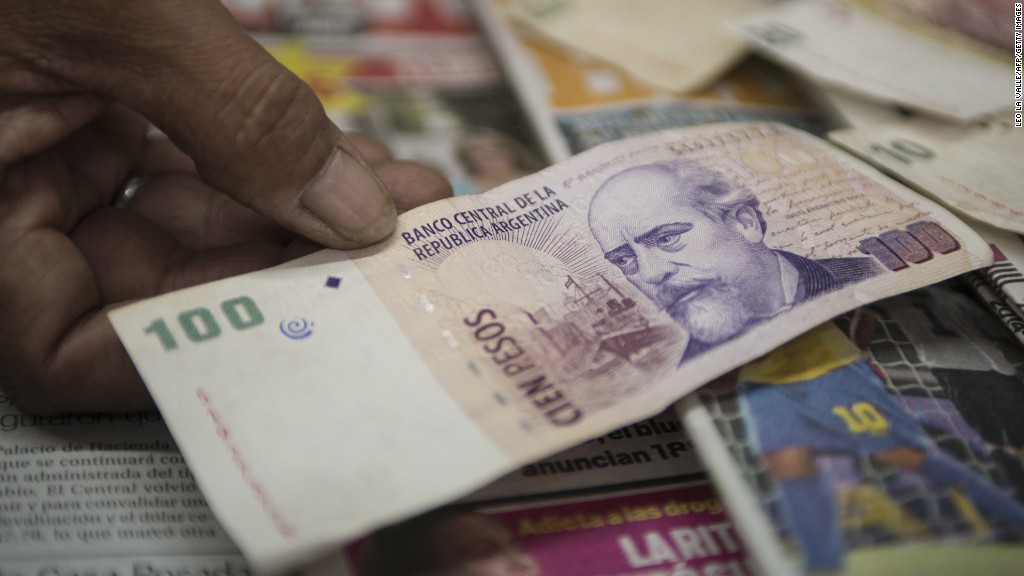
1. Trouble in paradise: For the past decade, a river of easy money rushed into emerging markets.
Now that powerful force is reversing. Rising interest rates, along with trade wars, have started a stampede out of some emerging markets. The Turkish lira and Argentine peso have crashed, while China’s stock market is stuck in a bear market.
Problems long masked by extremely low interest rates are now coming into sharp focus.
“The tide … is receding and some countries have been, or will be, caught naked,” Jason Daw, head of emerging markets strategy at Societe Generale, wrote to clients last week.
Developing economies may not get relief anytime soon. The Federal Reserve is expected to keep steadily lifting interest rates off the floor. The rate hikes represent a vote of confidence in the strong American economy, which continues to prop up US stocks.
However, the end of easy money — along with a surge of trade tensions — is causing serious headaches in other parts of the world.
Higher rates strengthen the US dollar, making it more difficult for countries like Turkey that took out a ton of dollar-denominated debt. Moreover, the rate hikes have lured money that had flocked to far-flung places back to the United States.
But not all emerging markets are feeling the pain equally. Some, like South Korea and Thailand, seem to be weathering the storm relatively well. That’s a huge flip from two decades ago, when an Asian financial crisis began with the implosion of the Thai baht.
Others, like Turkey, have gotten crushed. The Turkish central bank had to resort to a surprisingly strong interest rate hike last week to stem the bleeding in the lira. Argentina’s central bank hiked interest rates to 60%. The central bank of Russia, which has been hammered by sanctions from Washington, surprised investors on Friday with the first interest rate hike since 2014. South Africa’s central bank, which meets on Thursday, could be forced to do the same.
Daw said that countries most susceptible to the emerging market stress have several things in common.
First, they’ve piled on lots of dollar-denominated debt — much of which is due soon. Second, they have relatively high overall levels of debt and low rainy-day funds. And these emerging markets are running trade and budget deficits.
So which countries fit these categories? Daw called out Turkey, South Africa, Malaysia, India and Indonesia as the most vulnerable.
“The misallocation of capital following a decade of cheap money is starting to be exposed,” Daw said.
2. More earnings: It’s a slower week for earnings, but some notable companies will post results, including Oracle, FedEx, General Mills, AutoZone and Olive Garden owner Darden Restaurants. The booming economy and lower tax rates have boosted corporate profits.
3. New Apple products: Apple’s new iPhone models hit store shelves on Friday. The company is also releasing iOS 12, Apple Watch and software updates to its HomePod and tvOS devices. Apple’s (AAPL) stock is up 32% this year.
4. S&P reclassification: The S&P 500 is undergoing some changes on Friday. A number of major tech and telecommunications stocks will move to the communication services unit, including Facebook (FB), Netflix (NFLX) and Alphabet (GOOGL).
5. Coming this week:
Monday — Oracle (ORCL) and FedEx (FDX) earnings; iOS 12 launches
Tuesday — General Mills (GIS) and AutoZone (AZO) earnings; US Treasury foreign bond ownership stats
Thursday — Darden (DRI) Restaurants and Micron Technology (MU) earnings
Friday — S&P reclassification; new iPhones and Apple Watch hit stores
CNNMoney (New York) First published September 16, 2018: 7:21 AM ET





